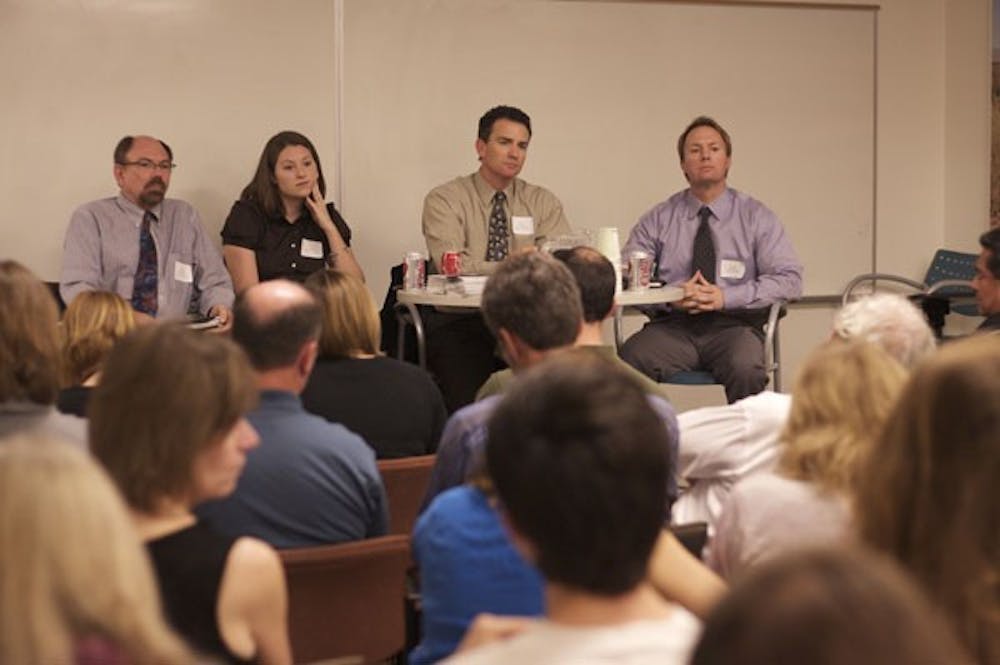The use of wastewater as a sustainable resource is a common but misunderstood practice in Arizona, experts said at a sustainability forum Wednesday.
A panel of local water experts discussed the state’s wastewater reuse in a forum organized by graduate students from the Global Institute of Sustainability and the School of Life Sciences.
The Water Climate Briefing gathered about 75 students, faculty members and city utility representatives from several Maricopa County cities for the discussion.
“We want to educate the community about the potential for water reuse, find solution approaches related to water reuse and find potential research questions for students,” said Guy Carpenter, national director for the WateReuse Association.
The briefing was organized by ASU’s Decision Center for a Desert City, an organization dedicated to water management solutions for the urbanized desert of central Arizona.
Katja Brundiers, community-University liaison for the center, said the water and climate briefings foster discussion about relevant issues concerning water sustainability in the face of climate change.
“They’re designed to enhance knowledge exchange between academicians and professionals in the public and private sector, or the public in general,” Brundiers said.
Carpenter moderated the forum, which focused on challenges surrounding state implementation of wastewater reuse, such as confusing regulations and public ignorance.
Chuck Graf, senior hydrologist for the Arizona Department of Environmental Quality, outlined some of the efforts made by the department to enhance the quality of reusable wastewater.
“We hope to turn a waste into a resource,” Graf said.
New quality standards for wastewater treatment facilities implemented by the Department of Environmental Quality have led to wastewater standards being almost as high as the standards for drinking water, he said.
“The quality is very high compared to the rest of country,” Graf said.
About 80 percent of Arizona’s water is reused or recycled, he said.
“We engage in a lot more reuse than most people think,” Graf said.
Channah Rock, water quality extension specialist for UA’s Soil, Water and Environmental Science Department, said there needs to be trust between utilities and the public.
“There is a great disconnect about what is currently being done,” she said.
Rock assisted with a 2008 public water survey in a joint collaboration between UA and NAU, which involved 400 residents across Arizona and their perceptions of water reuse.
“We are taking research and science and translating it for the public,” Rock said.
The survey found that many Arizona residents were turned off by words like “wastewater” and were unaware of its potential uses, she said.
“If we, as educators, can convey that the risk is low, we can enhance the reuse of water,” Rock said.
Sustainability graduate student Haley Paul, who attended the forum, said it was an excellent demonstration of community officials and educators sharing information.
“This is the whole point of DCDC,” Paul said, adding that public reassurance about the quality of reclaimed water will lead to more effective reuse.
“It will be really helpful for regional sustainability in the Valley,” she said.
Reach the reporter at chase.kamp@asu.edu





